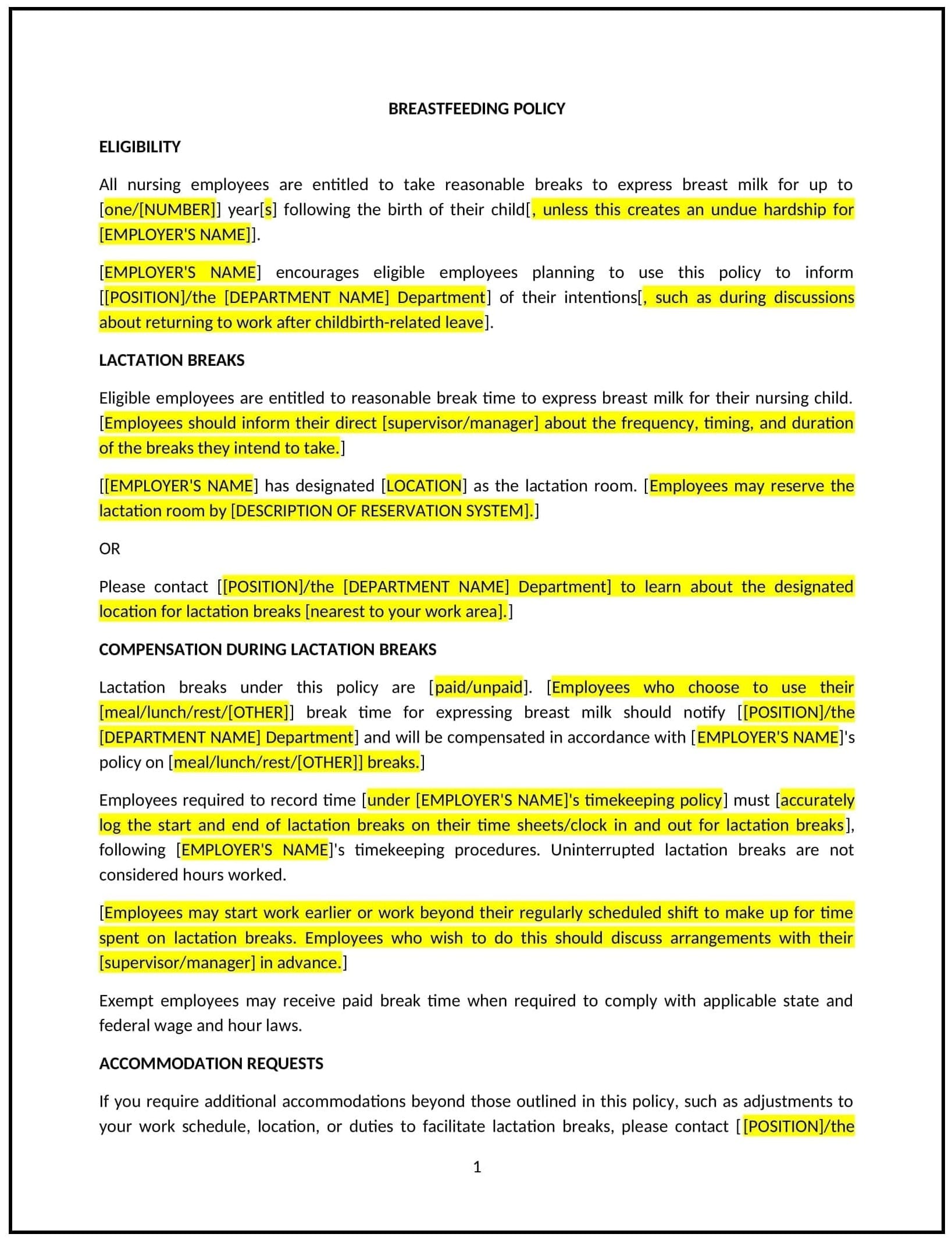Breastfeeding break policy (Rhode Island): Free template
Got contracts to review? While you're here for policies, let Cobrief make contract review effortless—start your free review now.

Customize this template for free
Breastfeeding break policy (Rhode Island)
This breastfeeding break policy is designed to help Rhode Island businesses establish guidelines for supporting nursing employees who need time and space to express breast milk during work hours. It outlines procedures for providing breaks, ensuring privacy, and complying with state and federal laws, such as the Fair Labor Standards Act (FLSA).
By adopting this policy, businesses can support working parents, promote inclusivity, and align with general best practices for workplace accommodations.
How to use this breastfeeding break policy (Rhode Island)
- Define breastfeeding breaks: Explain what constitutes a breastfeeding break, such as time off to express breast milk.
- Establish break procedures: Provide steps for employees to request breaks, including frequency and duration.
- Address privacy requirements: Outline how the business will provide a private, clean space for nursing employees to express milk.
- Set compliance measures: Ensure that breastfeeding breaks comply with state and federal laws, such as the FLSA and Rhode Island’s workplace accommodations law.
- Train managers: Educate supervisors on handling breastfeeding break requests and maintaining a supportive work environment.
- Review and update: Assess the policy annually to ensure it aligns with evolving business needs and legal standards.
Benefits of using this breastfeeding break policy (Rhode Island)
This policy offers several advantages for Rhode Island businesses:
- Supports working parents: Demonstrates a commitment to helping nursing employees balance work and family responsibilities.
- Promotes inclusivity: Creates a welcoming environment for employees of all backgrounds and life stages.
- Aligns with legal standards: Helps businesses comply with state and federal laws related to breastfeeding accommodations.
- Builds trust: Shows employees that the business values their well-being and personal needs.
- Reduces turnover: Encourages employees to stay with the business by providing supportive accommodations.
Tips for using this breastfeeding break policy (Rhode Island)
- Communicate the policy: Share the policy with employees and include it in the employee handbook.
- Provide training: Educate managers on handling breastfeeding break requests and maintaining a supportive work environment.
- Monitor adherence: Regularly review break requests and accommodations to ensure compliance with the policy.
- Address issues promptly: Take corrective action if breastfeeding break requests are mishandled or if accommodations are inadequate.
- Update regularly: Assess the policy annually to ensure it aligns with evolving business needs and legal standards.